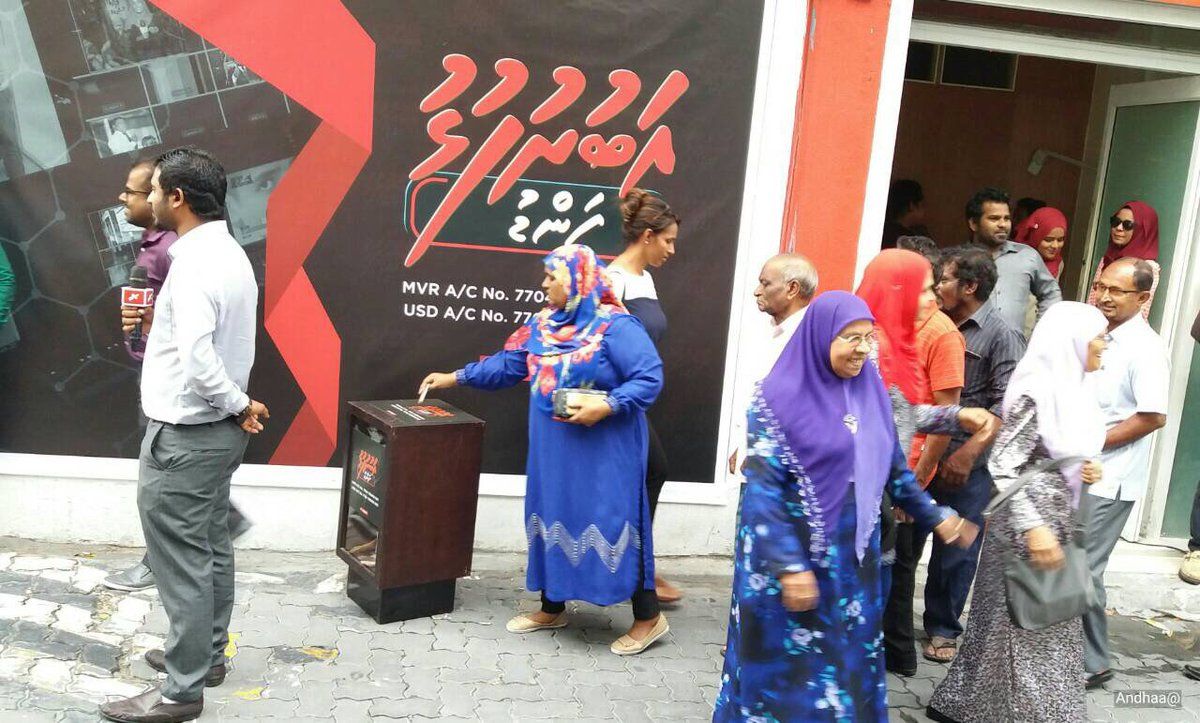RaajjeGate: Fines, fundraising and lawsuits
The fines, and efforts to pay them off, have had a visible impact on Raajje TV’s ability to continue with its news reporting.

16 Oct 2017, 09:00
During a daily team meeting one Sunday at Raajje TV, journalists and producers debated on ways to minimise the impact of their third fundraising drive for the year on their work.
The campaigns – the current one launched on October 8 – battle exorbitant fines imposed by the Maldives Broadcasting Commission (MBC) after the introduction of a draconian anti-defamation act.
The fines, and efforts to pay them off, have had a visible impact on the broadcaster’s ability to continue with its news reporting.
Staff have taken to the streets with boxes in tow, asking for public support in dealing with what it describes as “targeted action to kill press freedom”.
Become a member
Get full access to our archive and personalise your experience.
Already a member?
Discussion
No comments yet. Be the first to share your thoughts!
No comments yet. Be the first to join the conversation!
Join the Conversation
Sign in to share your thoughts under an alias and take part in the discussion. Independent journalism thrives on open, respectful debate — your voice matters.




